In the wake of Greece's financial crisis, where have all the children gone?
During the country’s deep and prolonged crash an already low birthrate ticked down further – and the demographic changes have darkened Greece’s prospects for revival
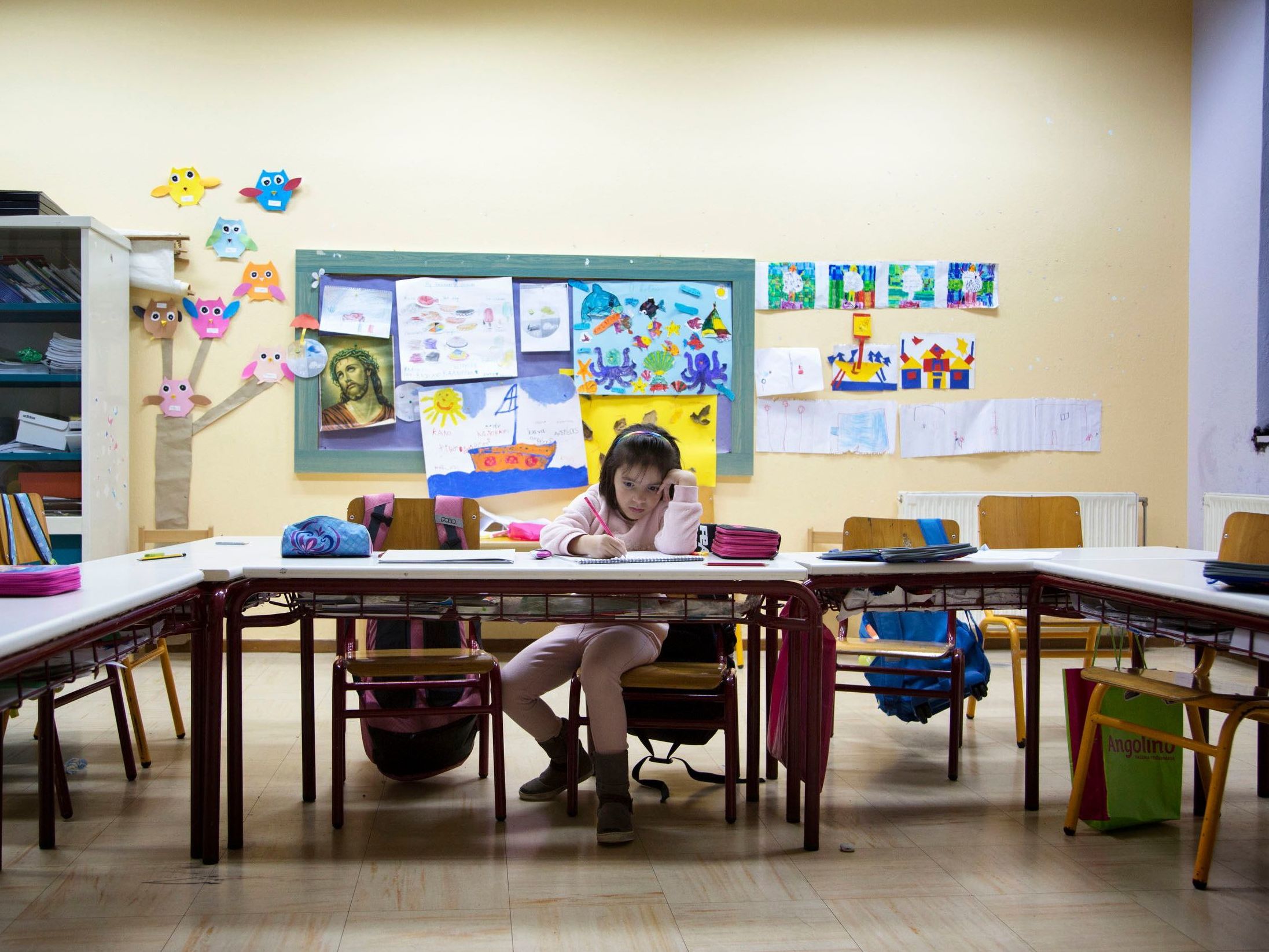
Your support helps us to tell the story
From reproductive rights to climate change to Big Tech, The Independent is on the ground when the story is developing. Whether it's investigating the financials of Elon Musk's pro-Trump PAC or producing our latest documentary, 'The A Word', which shines a light on the American women fighting for reproductive rights, we know how important it is to parse out the facts from the messaging.
At such a critical moment in US history, we need reporters on the ground. Your donation allows us to keep sending journalists to speak to both sides of the story.
The Independent is trusted by Americans across the entire political spectrum. And unlike many other quality news outlets, we choose not to lock Americans out of our reporting and analysis with paywalls. We believe quality journalism should be available to everyone, paid for by those who can afford it.
Your support makes all the difference.Another school year was starting, with students arriving for their first day and lining up by grade, but when one mother dropped off her first-grader and watched him take his place, she wondered: where are all the children?
“There were so few of them,” says Vasso Harisiadi, who had attended school in the same town. “I thought the yard would be full of kids.”
The newest class of children at Kalpaki Elementary was, instead, a reflection of Greece’s intensifying demographic troubles. For 2018, there were just 13 first-graders. A few pupils lived in villages where they were the only children. A half-dozen other schools in the area had recently shuttered. More and more would-be parents were moving away or holding off on having children – because they were jobless or, like Kalpaki’s first-grade teacher, were making too little to afford it.
“At the moment, I can’t even consider kids,” says the teacher, Maria Bersou, 33, who earns $18,000 (£14,200) a year. “I can’t save money at all.”
The Greek economy no longer looms over Europe as a bailout-dependent, euro-imperiling danger, but the country is only beginning to contend with the next phase of peril: a baby bust that has raised the likelihood of a shrunken, weakened Greece for years to come.
During the country’s deep and prolonged crash, which began in late 2009 and worsened in 2011 and beyond, an already low birthrate ticked down further, as happened throughout the troubled economies of southern Europe. Greece was also hit by a second factor, with half a million people fleeing the country, many of them young potential parents. Although Greece has been on the front line of the migrant wave from the Middle East and north Africa, the majority of new arrivals have moved on to other parts of Europe, and the newcomers don’t make up for the losses.
As a result, the country’s recession has helped produce postwar Greece’s smallest generation – a group of young children who are now reaching elementary age, some arriving at schools wearing secondhand shoes and backpacks, and who are only at the earliest stages of grasping the daunting era they’ve been born into.
“The kids don’t know we used to be better off,” says Sotiria Papigioti, the mother of a first- and a second-grader at Kalpaki. “But when they ask for things, I tell them, ‘We’re not in the position to afford this.’”
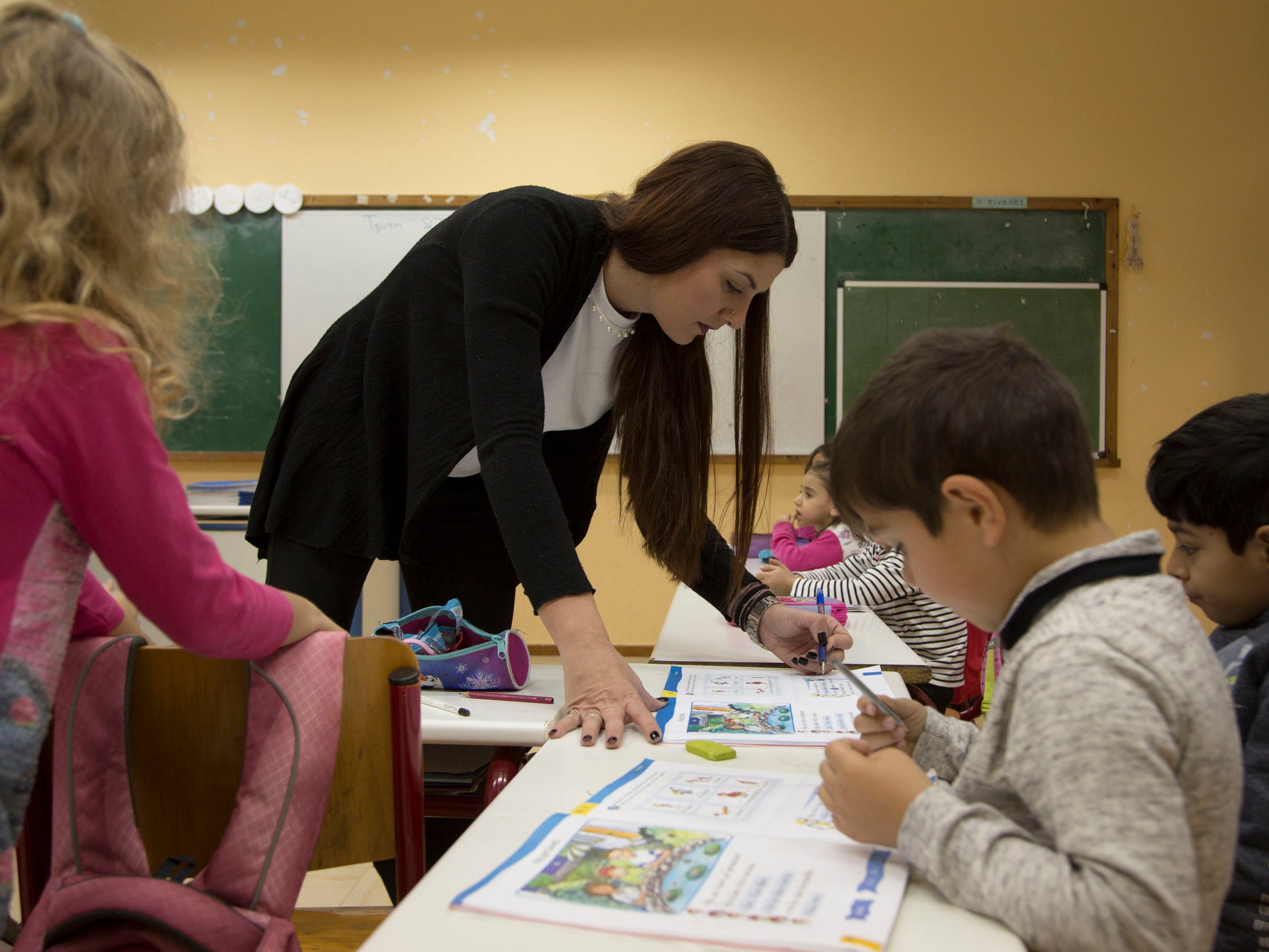
Greece’s fertility rate, of about 1.35 births per woman, is among the lowest in Europe, and well below the rate of 2.1 needed for a stable population, not accounting for immigration. The fertility rate in Greece had been on the upswing before the crisis, hitting 1.5 births per woman in 2008. That progress has since been erased, and the birthrate has plummeted back towards the depths seen in the late 1990s and early 2000s.
But because of the exodus of would-be parents, the number of children born in Greece has dropped more dramatically than the fertility rate – reaching historic lows. In 2009, just before the fiercest parts of the crisis, there were 118,000 births in Greece. The number has since fallen steadily, becoming well eclipsed by the number of deaths. The birth total in 2017, 88,500, was the lowest on record.
* * *
Some countries, in the aftermath of economic crises, have seen a quick recovery in their fertility rates. But that is unlikely to happen in Greece, says Byron Kotzamanis, a demographer at the University of Thessaly, because even before the crisis the average woman in Greece wasn’t having children until age 31. Some women who postponed pregnancy during the recession have lost out on their chance entirely. As a result, Kotzamanis says, the recession has permanently reduced the size of the newest Greek generation – and has reduced the pool of parents in years to come.
“We’ll have fewer and fewer births in Greece over the next decades,” Kotzamanis says.
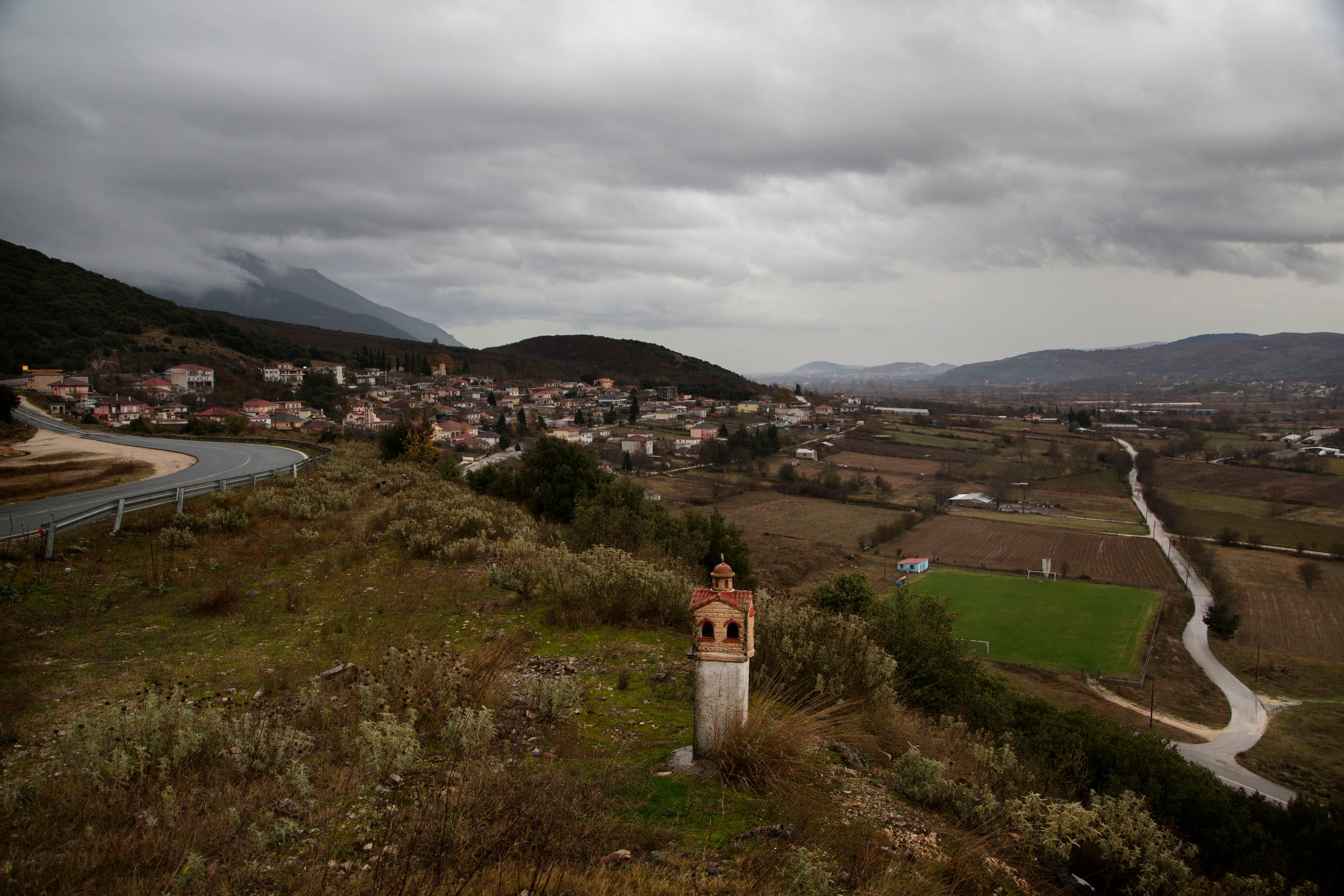
The demographic changes have darkened Greece’s prospects for the kind of revival seen after the US’s Great Depression of the 1930s or the Asian financial crisis of the 1990s. Greece’s economy remains 25 per cent smaller than it was a decade ago, and over the next six decades, the European statistics office estimates that Greece’s population of 10.7 million will decrease by 32 per cent – a rate eclipsed only by a few lower-income eastern European countries that have seen their own drain of workers to wealthier parts of the continent.
For Greeks, the changes are playing out across the country. In the cafes of Athens, childless women in their thirties lament the lack of daycare options and the perpetually weak family support programmes from a government now contending with austerity and pension costs. In the country’s more rural areas, would-be parents say that even if they were to give birth, they would struggle to find doctors, many of whom have moved abroad. Stefanos Chandakas, a gynecologist who founded a nongovernmental organisation to help provide prenatal care, says that on one Greek island of 1,000 people, no children were born during at least a three-year span in the middle of the crisis.
“We have pictures from islands – they’ll have big parades, and there is only one child holding a flag,” Chandakas says.
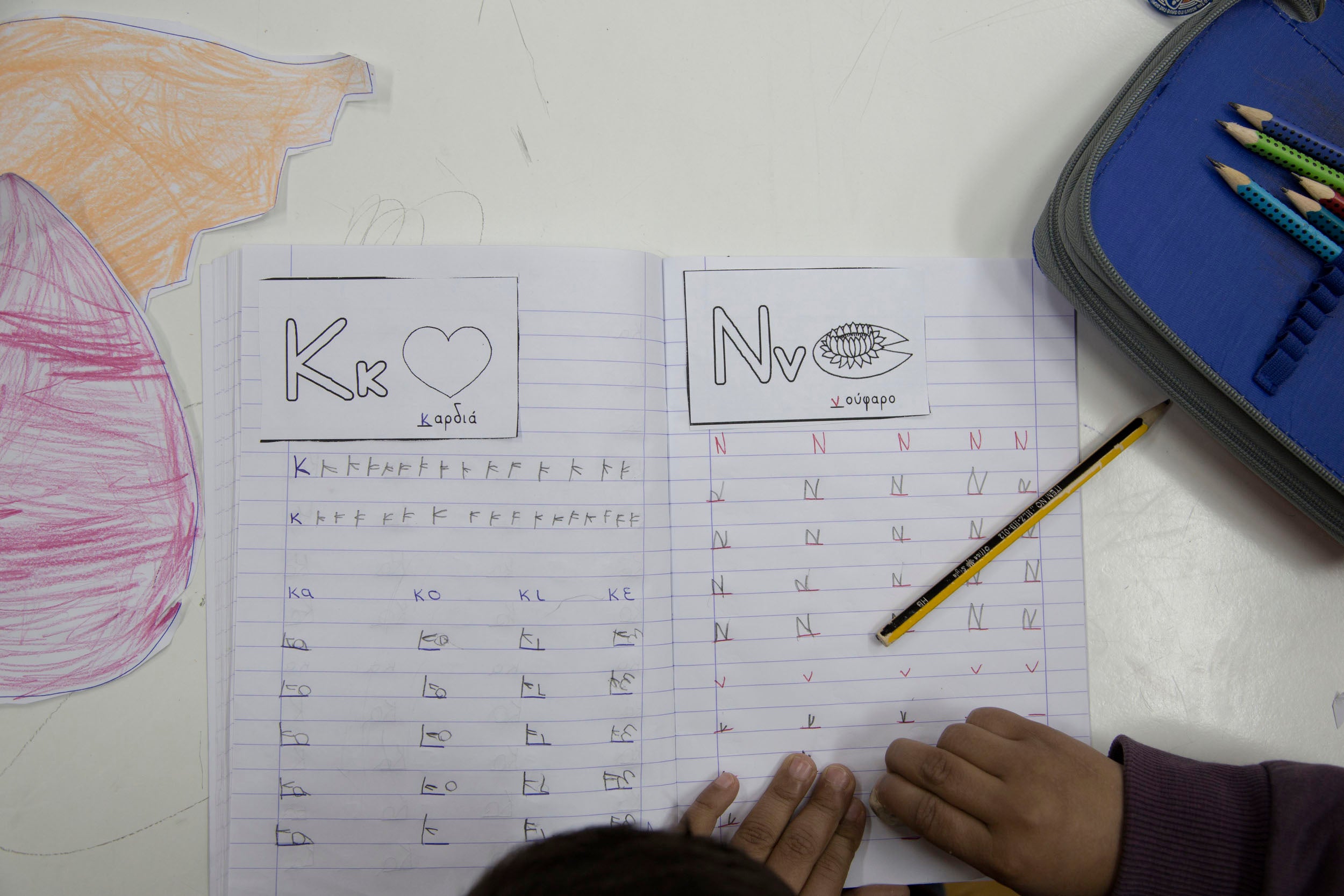
At Kalpaki Elementary, a two-storey schoolhouse off a main road in the country’s mountainous northwest, some of the routines look nearly unchanged from the time the school opened in 1996. The days start with a Greek Orthodox prayer. Children play soccer during breaks. Parents say the school has managed admirably during recent years, even while repeatedly cutting salaries and trimming spending by 30 per cent. The headteacher says Kalpaki Elementary has been fortunate: unlike some other schools, it didn’t have to cut off its heat.
Still, the demographic changes have left their mark both on the school and on the lives of the children. Twenty years ago, the school had 100 pupils. Today, because neighbouring schools have closed, it draws students from a far wider area than before. But Kalpaki now has just 70 students in grades one to six. Of that group, 20 are ethnic Albanians whose parents relocated to Greece mostly in the decades before the crisis. Another 20 children are newly arrived Syrians, whose families are living in a hillside camp while applying for asylum.
“What we see is a shrinking of the local population,” says headteacher Miltos Mastoras. “Without the Syrians, there would be half the number as 20 years ago.”
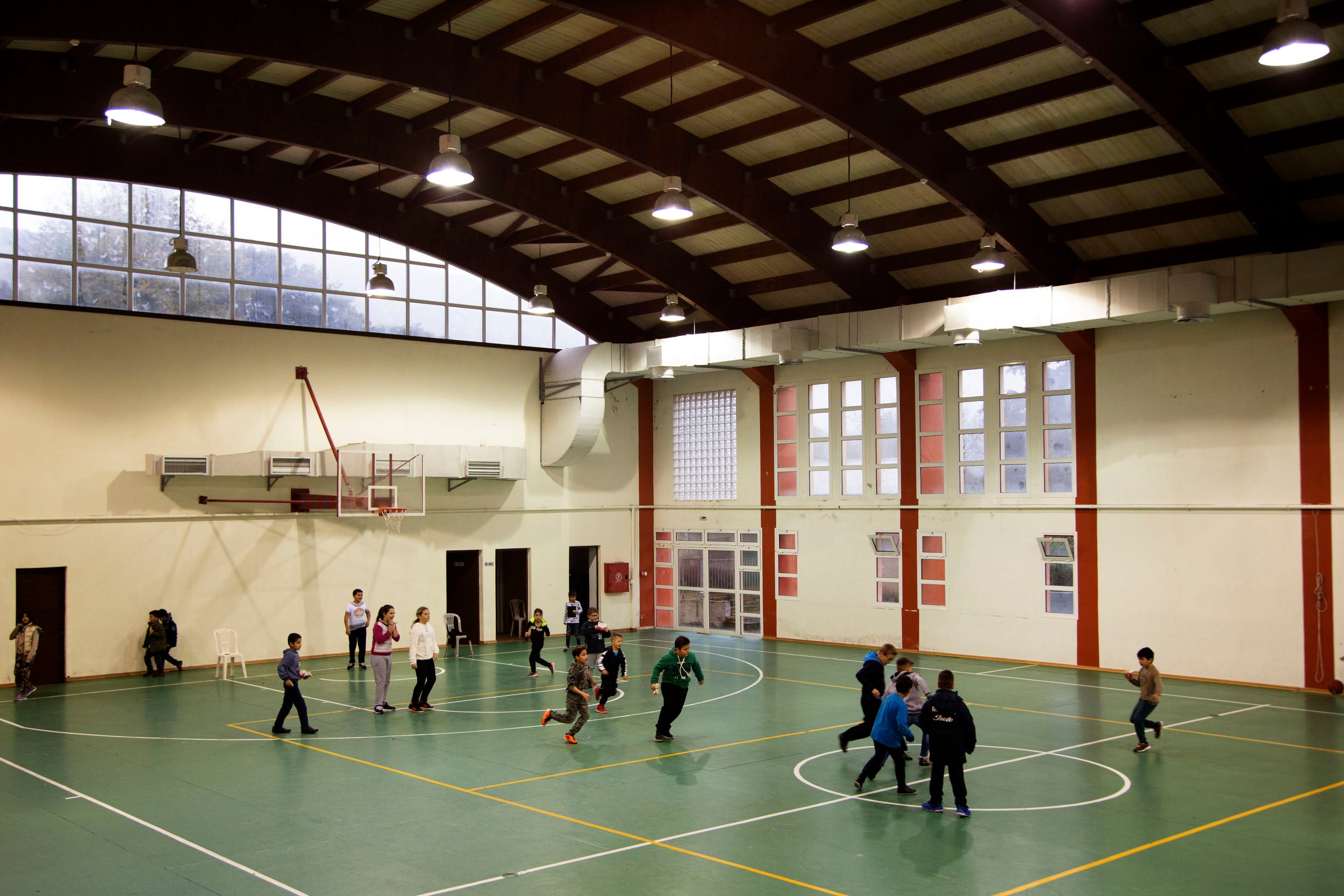
In the first-grade classroom, the students have learned this year about sounding out syllables, and triangles, and words to describe the weather in English. The walls have chipping paint, and the closest thing to a piece of technology is the radiator.
“We’re a little behind,” Bersou says.
She has sometimes wondered how the crisis might be shaping her six- and seven-year-olds. At the beginning of the year, she had asked parents to buy a few basic supplies for their children. “You see their reactions when they get this stuff,” Bersou says of her students. “They get happy with a marker.”
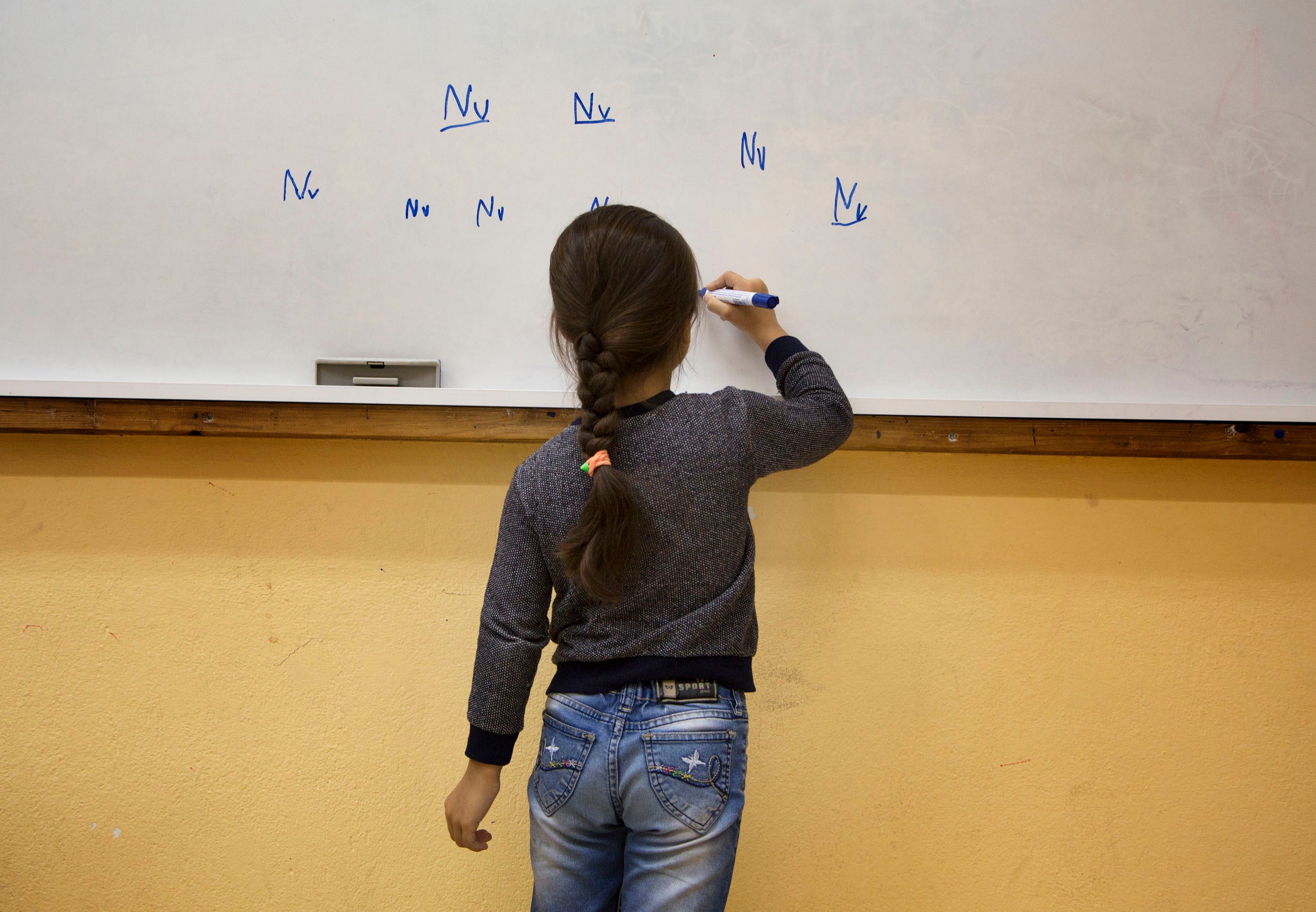
The Greek children in Bersou’s class tend to come from families where at least one parent holds a relatively stable job – as a farmer, a police officer, a worker at a nearby bottling factory. These families are part of the group that can manage to afford children, even if just barely. Some of the first-graders’ parents are in their forties, towards the end of their childbearing years, and say they couldn’t have waited out the crisis if they wanted to have kids.
Bersou is still waiting for the chance to feel steady enough to have children of her own – something she says she badly wants. She lives in the closest nearby city, 30 minutes away by car, where she’s built a life that is designed to feel temporary: a one-bedroom apartment, only a few friends. Her parents, who saw their own earnings reduced because of the crisis, still help her with her car payments and phone bills. As is becoming typical for young Greeks, she is waiting for something better, afraid she is treading water, and doubtful that much will improve.
“It affects your psyche,” Bersou says. “The years pass by, and it’s like: What have I done with my life?”
She tries to make up for it by doing what she can with her class. With her own money, she has bought construction paper for art projects and stickers to pass out to the most well-behaved students. This year, she has effectively taught two classes: one for the three Syrian first-graders who speak little Greek, the other for the remaining 10. Some days, she brings in her own laptop and shows the students songs, short films or educational games.
One of Bersou’s quieter students is Chrysa Papigioti, who likes to draw and wants to be a veterinarian. Chrysa lives in a mountainside village 10 miles from Kalpaki where she and her brother are the only elementary-age children. Her father isn’t home much since he took a job as a travelling salesman, selling mattresses and other household items across western Greece – the only job he could find after a period of unemployment.
“She is good at doing her own thing,” her mother, Sotiria Papigioti, says as she watches Chrysa build a shop out of Lego; constructing a counter and adding a cash register.
Chrysa and her brother aren’t allowed to watch the news, and their mother says they’ve never asked her a direct question about any hardship in the country. They don’t yet need to know about the pay cuts she has taken in her job as a police officer, or about the large loan looming over the family, or about how she and so many other parents in the region have helped one another in finding hand-me-down clothing and other items for their children.
For Chrysa, learning about all that can wait.
“Kids don’t need to know everything,” Papigioti says. “I don’t want them to have bad thoughts. I want them to have a childhood.”
The Washington Post’s Elinda Labropoulou contributed to this report
© The Washington Post
Join our commenting forum
Join thought-provoking conversations, follow other Independent readers and see their replies
Comments